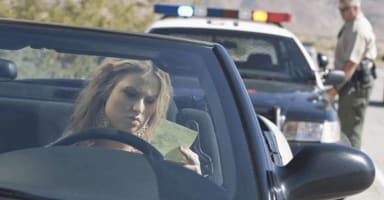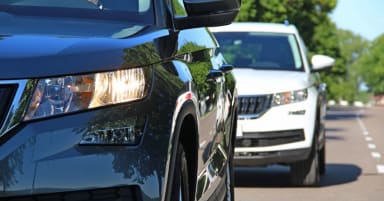First, let's be clear that an SR-22 isn't insurance. Even though people may use terms like ‘SR-22 Insurance’, it's actually a certificate that proves you carry the minimum required liability insurance. Your insurance company files this form with your state's DMV to verify your coverage meets legal requirements.
You need non-owner SR-22 insurance when the state requires this proof of financial responsibility but you don't own a vehicle. In other words, you need insurance but you don't own a vehicle. Common scenarios include selling your car after a DUI conviction, having your car impounded following a serious violation, relying on public transit or rideshares while your license was suspended, or borrowing cars from family and friends during your SR-22 requirement period.
Non-owner insurance provides liability coverage when you borrow or rent vehicles. After purchasing a non-owner policy, your insurer files the SR-22 certificate with your state's DMV on your behalf, confirming you meet state minimum insurance requirements even without owning a car.
Here's how to get an SR-22 without a car.
1. Confirm you need an SR-22 filing. Contact your state's DMV to verify the requirement and understand specific coverage requirements. You'll receive official notification either at your court hearing or through a letter from the DMV.
2. Find an insurance company that offers non-owner SR-22 policies. Not all insurers provide non-owner SR-22 coverage, so call multiple companies before applying. Progressive, GEICO and The General commonly offer this coverage for high-risk drivers.
3. Purchase a non-owner car insurance policy meeting your state's minimum liability requirements. You'll need bodily injury and property damage coverage at state-mandated minimums. Most policies cost less than standard auto insurance since they don't include collision or comprehensive coverage.
4. Inform your insurance agent or insurer you need to file a non-owner SR-22. Your insurer will add the SR-22 certificate to your policy and electronically file it with your state's DMV. Some states require mail filing, which takes longer.
5. Pay the SR-22 filing fee, which ranges from $15 to $25. Some insurers charge this fee upfront, while others include it in each policy term. Your insurance company handles all paperwork and filing with the state.
6. Maintain continuous coverage for the required period, usually three years. If your policy lapses, your insurer must notify the DMV immediately. This triggers license suspension and resets your SR-22 requirement timeline, extending how long you'll need the filing.
7. Request an insurance letter of experience when your SR-22 requirement ends. This document verifies your continuous coverage history and helps lower future insurance premiums when you transition to standard coverage.










